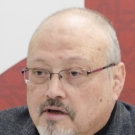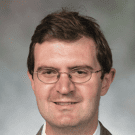Speakers

Jamal Khashoggi
Saudi Journalist and Author
Moderator
Event Summary
On November 17, 2017, Arab Center Washington DC (ACW) held a panel discussion to explore the regional and international implications of recent developments in Saudi Arabia. Over the last two weeks, Riyadh has arrested dozens of high-profile figures, seemingly facilitated the resignation of Lebanese Prime Minister Saad Hariri, grown increasingly belligerent with its rhetoric against Iran and Hezbollah, and intensified the war in Yemen. In light of so many stunning developments, ACW hosted two experts on Saudi Arabia to discuss the implications of these developments. Jamal Khashoggi, a Saudi journalist, columnist, and author, was joined by Dr. Kristian Coates Ulrichsen of the Baker Institute for Public Policy at Rice University.
In his introductory remarks, ACW’s Executive Director Khalil Jahshan recounted the developments in Riyadh and posed a number of questions: What is the true meaning behind the current anti-corruption purge? What will be the domestic implications of the roundup of high-profile figures? What impact will this campaign have on general governance, internal royal family politics, and the role of the religious establishment? Jahshan was quick to point out that this list was not exhaustive; in fact, he said, “frankly, more questions have been raised than answered.”
Khashoggi began by cogently detailing how many Saudi citizens like himself view Crown Prince Mohammed bin Salman’s anti-corruption crackdown. He explained that he and others have “called for everything that Mohammed bin Salman is doing right now” but summed up the campaign as the prince “doing the right things the wrong way.” Khashoggi explained that there has been no debate about, or transparency in, the fight against corruption in Saudi Arabia; in fact, journalists and writers are not even allowed to offer criticism, even of a constructive nature.
The economic implications of MbS’s domestic crackdown are already observable, according to Khashoggi. While rooting out corruption normally sends positive signals to potential investors, the impunity and indifference with which bin Salman is rounding people up are actually detrimental. Mohammed bin Salman has made no distinction between “royal” and “corporate” entities in the kingdom and, although the royal family is largely responsible for the corrupt nature of business, corporations and private sector businesses are being punished, too. This scares off potential investors at home and abroad.
Khashoggi offered a number of recommendations for how to move forward after these developments. MbS should address the economy and alleviate the “unemployment epidemic” in the kingdom as well as institute a sense of transparency in his corruption crackdown. As for general governance, Khashoggi suggested that the crown prince remove the most radical elements of the religious establishment from the government payroll, free reformist clerics, and embrace the “natural alliance” he has with the Saudi Muslim Brotherhood.
For Ulrichsen, the major implication of the last two weeks’ remarkable developments is that “the Saudi Arabia we have known since 1973 is slipping away and we are seeing the passing of the ‘old guard’.” The anti-corruption campaign at home and the increased adventurism in the region are not indicative of a “power play,” in Ulrichsen’s opinion, because “to the extent there was a power grab [in Saud politics], it…finished” well before the recent developments. With MbS firmly entrenched as king-to-be, Ulrichsen opined about future developments.
“Managing expectations is now one of the biggest problems facing Mohammed bin Salman,” Ulrichsen stated, concluding that “he now has to deliver.” Transforming his Vision 2030 into reality is much more difficult than the prince may have believed. He will face many operational hurdles and pushback from those with vested interests in maintaining the economy as it is now. Much like his adventures in Yemen and Syria, bin Salman “owns” the decisions in a way that many predecessors have not; it is a risk that could go very wrong, Ulrichsen said, and since MbS is quite young, he will potentially be around much longer than previous Saudi monarchs to pay the consequences.
While the speakers tended to agree on many points, their opinions diverged slightly when examining the regional implications of recent developments. To Khashoggi, Iran is the single biggest threat to the Saudis and they should push back strategically against their neighbor’s expansionism. Ulrichsen was much more skeptical, arguing that it would be extremely difficult to counter Iranian behavior in the region through proxy units and unconventional tactics; in this regard, Iran has had decades of practice to perfect such tactics. Ulrichsen conceded that Iran readily exploits power vacuums in the region, but he assessed that bin Salman miscalculated President Trump’s ability to help in countering Iran and has made foreign policy decisions that actually create more space for Iran to exploit the political realities in the Middle East.
Event Photos


